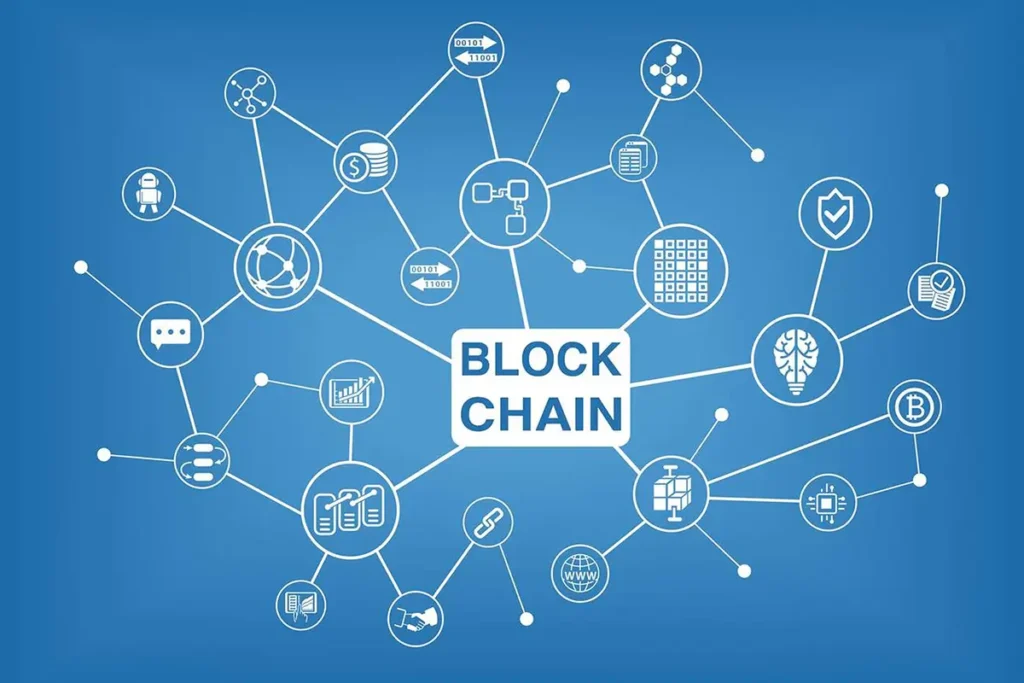Blockchain is often the buzzword associated with cryptocurrencies like Bitcoin, but there’s much more to it. Imagine a technology that’s not just about digital coins but about improving the way everyday processes work—from keeping track of where your food comes from to making secure, transparent payments across borders. Sounds futuristic, right? But this future is already happening, and blockchain is leading the way. Let’s break down how this tech is impacting consumers beyond crypto.
- What is Blockchain? (A Simple Breakdown)
- Digital Identity: Keeping Your Info Safe and Sound
- Supply Chain: The Truth Behind Your Purchases
- Smart Contracts: Say Goodbye to Middlemen
- Cross-Border Payments: Fast, Cheap, and Transparent
- Real Estate Transactions: Moving Fast and Securely
- Food Safety: Knowing What You Eat
- Challenges and Roadblocks: What’s Holding Blockchain Back?
- What Does the Future Hold?
What is Blockchain? (A Simple Breakdown)
In the simplest terms, blockchain is like a digital ledger—sort of like the old paper ledgers where businesses recorded transactions. The twist? It’s decentralized. No single person or entity controls it. Instead, the record of every transaction is spread across a network of computers (nodes). Each transaction gets grouped into blocks, and these blocks form a chain—hence, the name blockchain.
The best part? Once a transaction (or any data) is added to a block, it can’t be changed. This immutability makes blockchain a highly secure system. So, it’s not just about keeping track of who paid whom in Bitcoin. It’s about creating a permanent, tamper-proof record for just about anything.
Digital Identity: Keeping Your Info Safe and Sound

How many times have you handed over your personal info, hoping it stays safe? We’ve all been there. With data breaches becoming all too common, digital identity protection is a massive concern. Enter blockchain. This tech lets you store your identity on a decentralized system. Instead of relying on companies to guard your data (and praying they don’t get hacked), you control it.
Here’s how it works: Your personal data gets encrypted and added to the blockchain. Only you hold the keys to unlock it. If someone wants to verify your identity—whether it’s a doctor, a bank, or even a concert venue—they get access only to the specific bits of information you decide to share. The rest stays private and secure.
Think of it like owning a safe with multiple compartments. Instead of handing over the entire safe, you just give someone the key to one compartment. Simple, right? This is especially promising for areas like healthcare, where having your medical history instantly accessible (and securely stored) can be a game-changer.
Supply Chain: The Truth Behind Your Purchases
Ever wonder if that “organic” label on your food is really telling the truth? Blockchain technology can provide some answers. By tracking items from their origin to your local store, blockchain makes it possible to trace every step of a product’s journey.
Let’s say you’re buying a diamond ring. How do you know the diamond wasn’t mined in a conflict zone? With blockchain, every step—from the mining process to the jeweler’s display—can be tracked and verified. You’ll know exactly where it came from and what hands it passed through.
For food safety, it’s even more practical. Ever had a spinach recall because of contamination? With blockchain, grocers and consumers could quickly pinpoint which batches are affected, saving time, money, and, potentially, lives. No more guessing if that romaine lettuce is safe to eat.
Smart Contracts: Say Goodbye to Middlemen
Have you ever rented an apartment or bought something expensive like a car? Then you know about contracts. Usually, these involve a middleman (lawyers, agents, etc.) who make sure everything goes according to plan. But what if you didn’t need them?
Enter smart contracts—programs stored on the blockchain that automatically execute when specific conditions are met. Let’s break it down: You want to buy a house. Instead of dealing with an escrow company, a smart contract could hold your payment until all conditions are fulfilled (like the house passing inspection). Once everything checks out, the contract releases the money to the seller. No fuss, no middleman.
And it’s not just big purchases. Smart contracts can handle everything from insurance claims to rental agreements. By automating the process, they reduce errors, save time, and—most importantly—eliminate the need for trust between parties. You don’t need to rely on someone else to keep their word; the contract does it for you.
Cross-Border Payments: Fast, Cheap, and Transparent
Sending money overseas can be a headache. Between high fees, slow processing times, and currency exchange rates, it often feels like you’re losing out. Blockchain offers a better solution by enabling peer-to-peer payments across borders, no middlemen required.
Let’s say you’re sending money to a friend in another country. Instead of going through a bank (which might take days), blockchain lets you transfer money directly to them, often in minutes. Plus, the fees are much lower, and the transaction is fully transparent—you can see exactly when it was sent, received, and verified.
This isn’t just for individuals, either. Businesses are using blockchain to streamline payments, cut costs, and increase transparency. Whether it’s sending money to suppliers or paying remote workers, blockchain makes cross-border payments easier and more reliable.
Real Estate Transactions: Moving Fast and Securely
Buying or selling a house involves a lot of paperwork. Deeds, titles, contracts—it’s enough to make anyone’s head spin. Blockchain is changing that by digitizing and automating the process.
Each property transaction can be securely recorded on the blockchain, creating a permanent and transparent history of ownership. No more digging through paper files to prove you own your house. It’s all stored digitally and can’t be altered. Smart contracts can also automate payments and transfers, so you don’t have to wait weeks for everything to go through. It’s faster, cheaper, and more secure.
Imagine buying a house and having the entire process completed in days instead of months. With blockchain, that future isn’t far off.
Food Safety: Knowing What You Eat
We’ve all heard stories of food recalls—whether it’s contaminated lettuce or bad meat. It’s scary, especially when you’re unsure if what’s in your fridge is affected. Blockchain offers a solution by tracking food from farm to table.
Each step of the food’s journey—growing, processing, shipping, and selling—gets recorded on the blockchain. If something goes wrong, you can trace it back to the source in minutes. No more mass recalls of entire product lines; you’ll know exactly which batches are affected.
For consumers, this means peace of mind. You’ll know where your food came from, how it was handled, and whether it meets safety standards. And for businesses, it means fewer costly recalls and more efficient supply chains.
Challenges and Roadblocks: What’s Holding Blockchain Back?
While blockchain holds incredible potential, it’s not without its challenges. For one, the technology is still relatively new. Adoption has been slow, especially outside the tech-savvy crowd. Many people associate blockchain solely with cryptocurrency, which can create a perception problem.
Security is another issue. Although blockchain itself is secure, the applications built on it can be vulnerable. We’ve seen cryptocurrency exchanges get hacked, which makes people wary of adopting blockchain for more sensitive areas like personal data or payments.
Finally, there’s the question of regulation. Governments and financial institutions are still figuring out how to handle blockchain technology. The rules are evolving, and until there’s more clarity, widespread adoption might remain a bit slower than we’d hope.
What Does the Future Hold?
Blockchain’s future looks bright, but it’s still in its early days. As more companies and industries adopt the technology, we’ll see even more innovative uses that go beyond cryptocurrency. From voting systems to healthcare records to decentralized apps (dApps), the possibilities are endless.
For consumers, this means more control, more transparency, and—ultimately—more trust in the products and services we use every day. Blockchain is poised to change the way we interact with the world, one block at a time.

Dalton Warner
Dalton Warner is a seasoned tech writer and digital marketing expert with over five years of experience in consumer gadgets. As the mind behind The Gadget Flux Blog, Dalton Warner combines a passion for emerging tech with an ability to break down complex concepts into engaging, reader-friendly content. Their work has been featured on major platforms, helping audiences stay informed on the latest trends in AI-powered devices, smart homes, and more. When not writing, Dalton Warner enjoys exploring new gadgets and experimenting with smart home setups.
